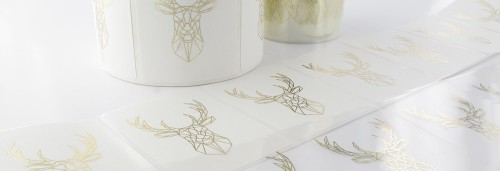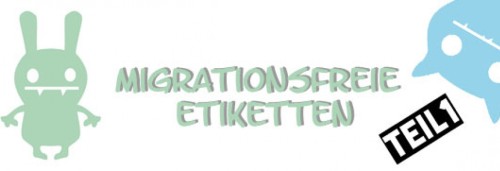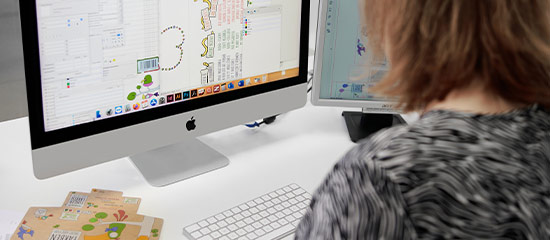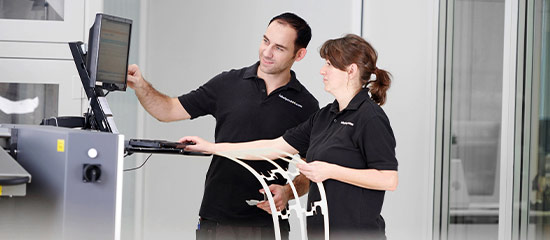Flashes when printing labels
How do flashes occur during label printing?
After label printing, the adhesive labels are punched out of the material roll using a cutting die or a laser punch. During this process, the final format deviates from the specified format by a fraction of a millimeter for processing reasons (printing stock, grammage, material volume, temperature, speed). If the print motif is to end exactly at the edge of the label, this can result in small, white edges - known as "glares". These flashes are visible to the eye. Particularly with elements that fall off the edge, such as images and colored backgrounds, they disrupt the visual appearance of label printing. With high-quality labels, this is enough to generate a lot of expensive waste paper for the waste paper garbage can.
Our tip: By creating a bleed when creating the print documents in your DTP program, you can safely compensate for these minimal production tolerances that arise during label printing.
Printing labels - What is a trim?
The paper edge in label printing is the line along which a label is punched to the final format. If printed areas (color areas, photos, graphics) extend exactly to the paper edge of a finished printed product, this is referred to as elements falling off the edge or in the bleed.
Such elements are created in print templates with bleed. These must be created 2 mm larger beyond the page margin in the layout program. The value for the bleed must be 2 mm on all four edges of the label.
Important!
The bleed (or bleed allowance) is therefore a margin that is added to the final format of a printed matter. You create the bleed by allowing graphics or colored areas to extend 2 mm beyond the final format on each side.
In the layout programs Adobe InDesign and QuarkXPress the bleed works quite simply. In Office programs such as Word or PowerPoint, no bleed can be defined.
An example: Adding bleed in InDesign
InDesign uses the term "bleed". The bleed can be entered as a bleed when you create the document.
To do this, the "More options" selection must be made. The bleed can be added later via "File" and "Document setup". In the print menu, the option "Use bleed settings of the document" must then be activated under "Marks and bleed".
Learn even more about print data?
Learn how to create a die-cutting outline or view all common print data requirements.
These articles may also interest you:

Label printing on foil and paper
Depending on the field of application and external conditions to which the labeled product is exposed during its use, the properties of the materials used in a label printing shop differ.

Printing low migration labels - part 1
More than 95% of all foodstuffs sold in Germany are already packaged. For cost reasons and in response to consumer demand, an ever larger proportion has to make do without additional film bags and with a small packaging sleeve.

Label Printing Germany - Labelprint24
We, Labelprint24 are one of the leading German e-commerce specialists for labels and many other packaging products. In the printing industry, we have earned an image as one of Germany's most innovative label manufacturers.












 Roll labels request form
Roll labels request form  Booklet labels request form
Booklet labels request form  Folding boxes request form
Folding boxes request form  Custom made shipping boxes request form
Custom made shipping boxes request form  Package leaflets request form
Package leaflets request form  Laminate tubes request form
Laminate tubes request form 



















